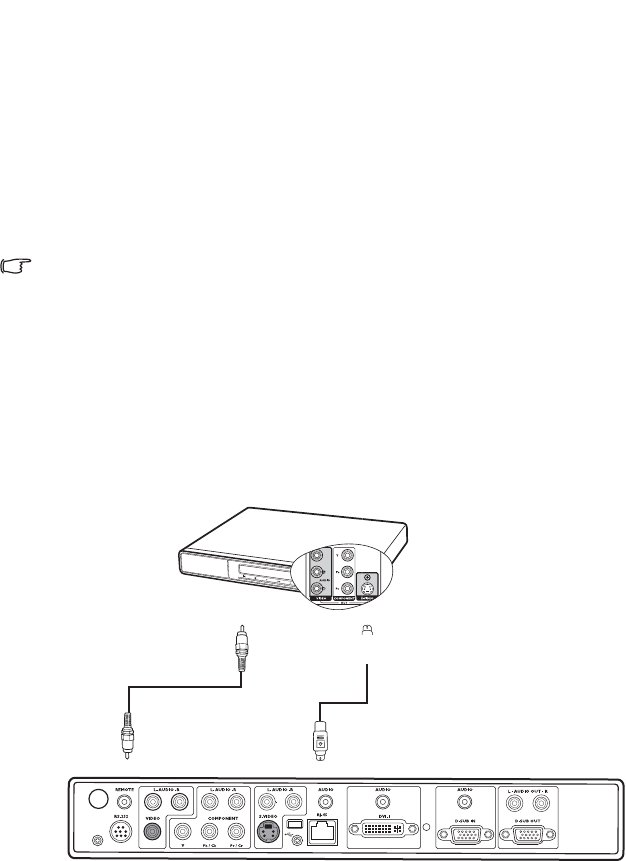
28 Connection
Connecting an S-Video or a composite Video source device
Examine your Video source device to determine if it has an unused S-Video or Video output
socket available:
• If it has both sockets, use the S-Video output socket for connection as the S-Video
termial provides better picture quality than the Video terminal. See "Connecting Video
source devices" on page 25 for details.
• If it has either of the output socket, you can also continue with this procedure.
• If not, you will need to reassess which method you can use to connect to the device.
If you have already made a Component Video connection between the projector and the video
source device, you need not connect to this device again using an S-Video or composite
Video connection as this makes an unnecessary second connection of poorer picture quality.
You need only connect using a composite Video connection if both Component Video and S-
Video are not supplied on the video source device (for example, with some analog video
cameras).
To connect the projector to an S-Video/Video source device:
1. Take an S-Video cable/Video cable and connect one end to the S-Video/Video output
socket of the Video source device.
2. Connect the other end of the S-Video cable/Video cable to the S-VIDEO/VIDEO
socket on the projector.
The final connection path should be like that shown in the following diagram:
• If the selected video picture is not displayed after the projector is turned on and the
correct video source has been selected, check that the Video source device is turned on
and operating correctly. Also check that the signal cables have been connected correctly.


















